“We tend to conjure entirely the wrong images when we try to keep ourselves safe from those who commit horrors. Assaultive and violent sociopaths, though a small minority, constitute a compelling reason to raise our awareness of the sociopathic pattern.”
A Sociopath is someone without a conscience, they display antisocial behaviors, and it is used to describe someone with Antisocial Personality Disorder (ASPD). According to the Diagnostic and Statistical Manual of Mental Disorders, Fifth Edition (DSM-5), people with ASPD are individuals who habitually and pervasively disregard or violate the rights and consideration of others with remorse.
Sociopaths are everywhere; they could be our spouse, sibling, friend, neighbour, classmate, work colleague, religious leader, confidant, or even enemies. We tend to think that most people are normal but that is far from the truth. The sad reality is that there are evil and manipulative people lurking around our homes, offices, churches, mosques, and schools, disguised as sheep in human clothing, snakes in suits, etc. The daily news cycle is filled with stories of homicides: Patricide, Matricide, Fratricide, Filicide, Mariticide, Nepoticide, Prolicide, Sororicide, Uxoricide, domestic violence, Paedophilia, and other acts we can not imagine. One common denominator of these news stories is the shocked neighbour or colleague, who cannot believe that the individual can commit such despicable and outrageous acts of violence.
“Sociopathy is more than just the absence of conscience, which alone would be tragic enough. Sociopathy is the inability to process emotional experience, including love and caring, except when such experience can be calculated as a coldly intellectual task.”
Clinical psychologist Martha Stout, author of The Sociopath Next Door, noted that 4 percent of the general population has an antisocial personality disorder. She observed:
One in twenty-five everyday Americans, therefore, is secretly a sociopath. They could be your colleague, your neighbor, even family. And they can do literally anything at all and feel absolutely no guilt.
“About one in twenty-five individuals are sociopathic, meaning, essentially, that they do not have a conscience. It is not that this group fails to grasp the difference between good and bad; it is that the distinction fails to limit their behavior. The intellectual difference between right and wrong does not bring on the emotional sirens and flashing blue lights, or the fear of God, that it does for the rest of us. Without the slightest blip of guilt or remorse, one in twenty-five people can do anything at all.”
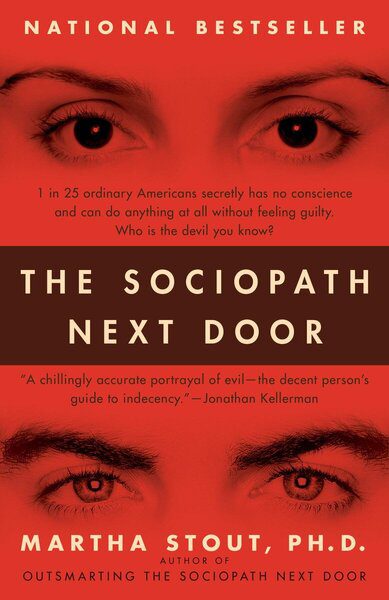
Who is a sociopath?
In her illuminating book, The Sociopath Next Door, Psychologist Martha Stout defines who a sociopath is; she writes
A sociopath is someone who “fails to conform to social norms,” or who is “never monogamous,” or who “fails to honour financial obligations,” for the straightforward reason that an obligation of any kind is something one feels toward beings, or toward a group of beings, who matter emotionally. And to a sociopath, we simply do not matter.
Sociopathy is, at its very essence, ice-cold, like a dispassionate game of chess. In this way, it is different from ordinary duplicitousness, narcissism, and even violence, which are often full of emotional heat. If necessary, most of us would lie to save the life of someone in our family, and it is something of a cliché to point out that a violent gang member (as opposed, perhaps, to his sociopathic leader) may conceivably feel loyalty and warmth toward the members of his gang, and tenderness for his mother and siblings.
People without conscience experience emotions very differently from you and me, and they do not experience love at all, or any other kind of positive attachment to their fellow human beings. This deficit, which is hard even to ponder, reduces life to an endless game of attempted domination over other people.
Signs of Sociopathy
According to the current bible of psychiatric labels, the Diagnostic and Statistical Manual of Mental Disorders-IV of the American Psychiatric Association, the clinical diagnosis of “antisocial personality disorder” should be considered when an individual possesses at least three of the following seven characteristics:”
(1) failure to conform to social norms;
(2) deceitfulness, manipulativeness;
(3) impulsivity, failure to plan ahead;
(4) irritability, aggressiveness;
(5) reckless disregard for the safety of self or others;
(6) consistent irresponsibility;
(7) lack of remorse after having hurt, mistreated, or stolen from another person.
The presence in an individual of any three of these “symptoms,” taken together, is enough to make many psychiatrists suspect the disorder.
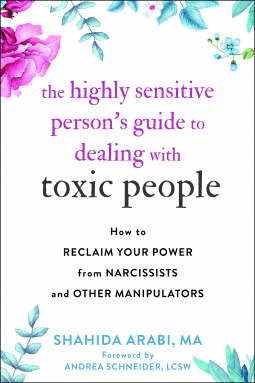
Author Shahida Arabi identified the sociopath as one of the 5 Types of Toxic People we would most likely come across. In her book, The Highly Sensitive Person’s Survival Guide to Dealing with Toxic People, she stated:
Sociopath” and “psychopath” are the more common terms used for people with antisocial personality disorder (ASPD), which is the closest diagnosis we have in the most current version of the Diagnostic and Statistical Manual of Mental Disorders (DSM-5) to describing psychopathy. Someone with ASPD will usually exhibit traits and behaviors such as a pattern of violating the rights of others, a failure to conform to social norms, irritability and aggressiveness, deceitfulness, impulsivity, reckless disregard for self and others, consistent irresponsibility, and lack of remorse.
Acronym for the defining traits of a psychopath:
- Pathological liar
- Superficially charming
- Yearns for constant stimulation
- Conscienceless and callous con artist
- Hides double life
- Overestimates self, grandiose
- Parasitic lifestyle and promiscuity
- Aggressive and impulsive
- Taunts and traumatizes for fun
- Hides in plain sight
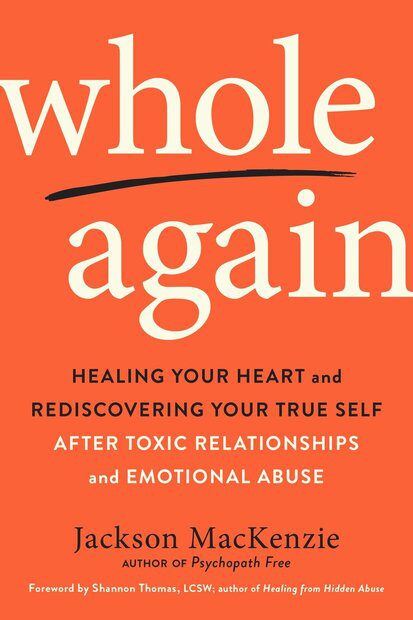
“The foundation of all mental illness is the unwillingness to experience legitimate suffering.” – Carl Jung
Hurt People Hurt People
In Whole Again: Healing Your Heart and Rediscovering Your True Self After Toxic Relationships and Emotional Abuse, author and co-founder of PsychopathFree.com, Jackson MacKenzie writes about the wound and describes the sociopaths wound:
What usually happens with a wound is that it’s given to you, your body accidentally believes its message, you hate this person, and spend the rest of your life proving you’re not what they said you are. Basically, you become the opposite of your wound.
- Perfectionists secretly believe they are imperfect and deeply flawed.
- Codependents secretly believe they are worthless and never enough.
- Borderlines secretly feel they don’t exist, so they are constantly trying to prove their existence (drama, temper, overly emotional).
- Avoidants secretly believe they have no value, so they find it elsewhere.
- Sociopaths believe they are powerless, so they seek to dominate and seduce others.
Sociopaths believe they are powerless, so they seek to dominate and seduce others.
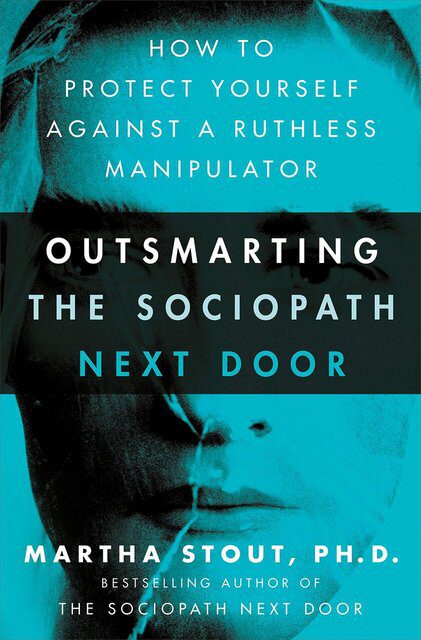
How to handle a Sociopath
In Outsmarting the Sociopath Next Door: How to Protect Yourself Against a Ruthless Manipulator, author, and clinical psychologist Dr. Martha Stout prefers 10 key guidelines for dealing with a sociopath:
The best way to deal with a sociopath is to avoid him or her, to refuse any kind of contact or communication. The only completely effective way to protect yourself is to disallow him or her from your life altogether. Sociopaths live wholly outside of the social contract, and, violent or not, they are always destructive. But, unfortunately, it is not always possible to avoid the sociopath, even after he or she has been identified.
TEN KEY GUIDELINES WHEN YOU MUST FIGHT A SOCIOPATH
- GUIDELINE #1: UNDERSTAND THE PERSON YOU ARE DEALING WITH
- GUIDELINE #2: UNDERSTAND THAT YOU ARE ON THE SIDE OF GOOD; ENVISION A MISSION.
- GUIDELINE #3: CHANGE THE GAME.
- GUIDELINE #4: FOCUS CLEARLY ON YOUR OWN GOAL.
- GUIDELINE #5: DO NOT GIVE THE SOCIOPATH WHAT HE OR SHE WANTS.
- GUIDELINE #6: ENLIST OTHERS.
- GUIDELINE #7: UNDERSTAND THAT THIS MISSION IS ONLY ONE PART OF YOUR LIFE RIGHT NOW.
- GUIDELINE #8: DO NOT CATASTROPHIZE.
- GUIDELINE #9: TAKE CARE OF YOUR HEALTH.
- GUIDELINE #10: PROTECT YOURSELF FROM VIOLENCE.
Learning about sociopathy encourages an understanding that evil is not a being or a force, but rather a tragic deficiency—an absence that sometimes occurs in the human brain and psyche—and that those afflicted with this deficiency do not all reside out there somewhere, but right here among us as well.
History is filled with man’s cruelty and inhumanity to other fellow humans, From dictators such as Adolf Hitler, Stalin, Mobutu Sese Seko to wife killers such as Scott Peterson, Chris Watts and serial killers such as Ted Bundy, John Wayne Gacy, Harold Shipman (Dr. Death) to name but a few. Someone like Adolf Hitler masterminded the Holocaust which was a genocide/systematic murdering of 6 million Jews across Europe. Hitler was not born that way but he got hurt as a young child and eventually as a failed artist. It was that pain and rejection that led to the hatred and terror, he became as an adult. As the saying goes ” Hurt People Hurt People.”
“Hurt People Hurt People.”
Sociopaths are everywhere but most of us do not see through their tactics such as gaslighting, projection, future faking, love bombing because we do not imagine anyone can be that heartless to perpetrate such evil. They are out there, eating with us on our dining table, sleeping with us on our bed, speaking to us on our phones as friends and colleagues. The key is to first become more self-aware and become a student of personalities. As Swiss-American Psychoanalyst Carl Jung once said “Until you make the unconscious conscious it will direct your life and you will call it fate.” If you know better, you can do better.
“Until you make the unconscious conscious it will direct your life and you will call it fate.” – Carl Jung
All the Best in your quest to get Better. Don’t Settle: Live with Passion.
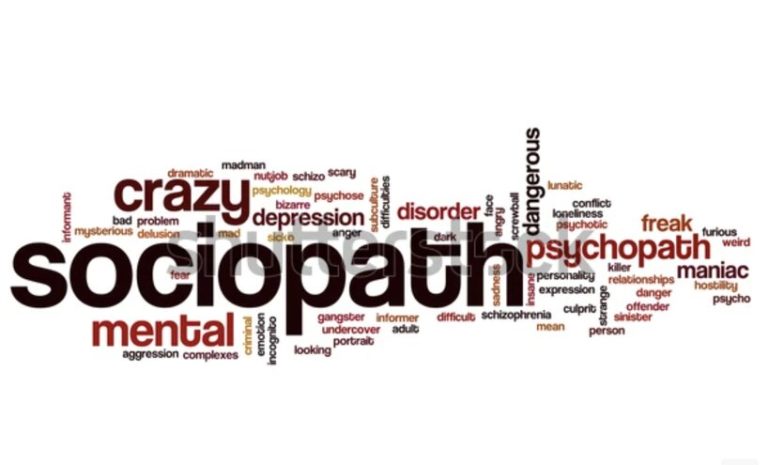


Comments are closed.